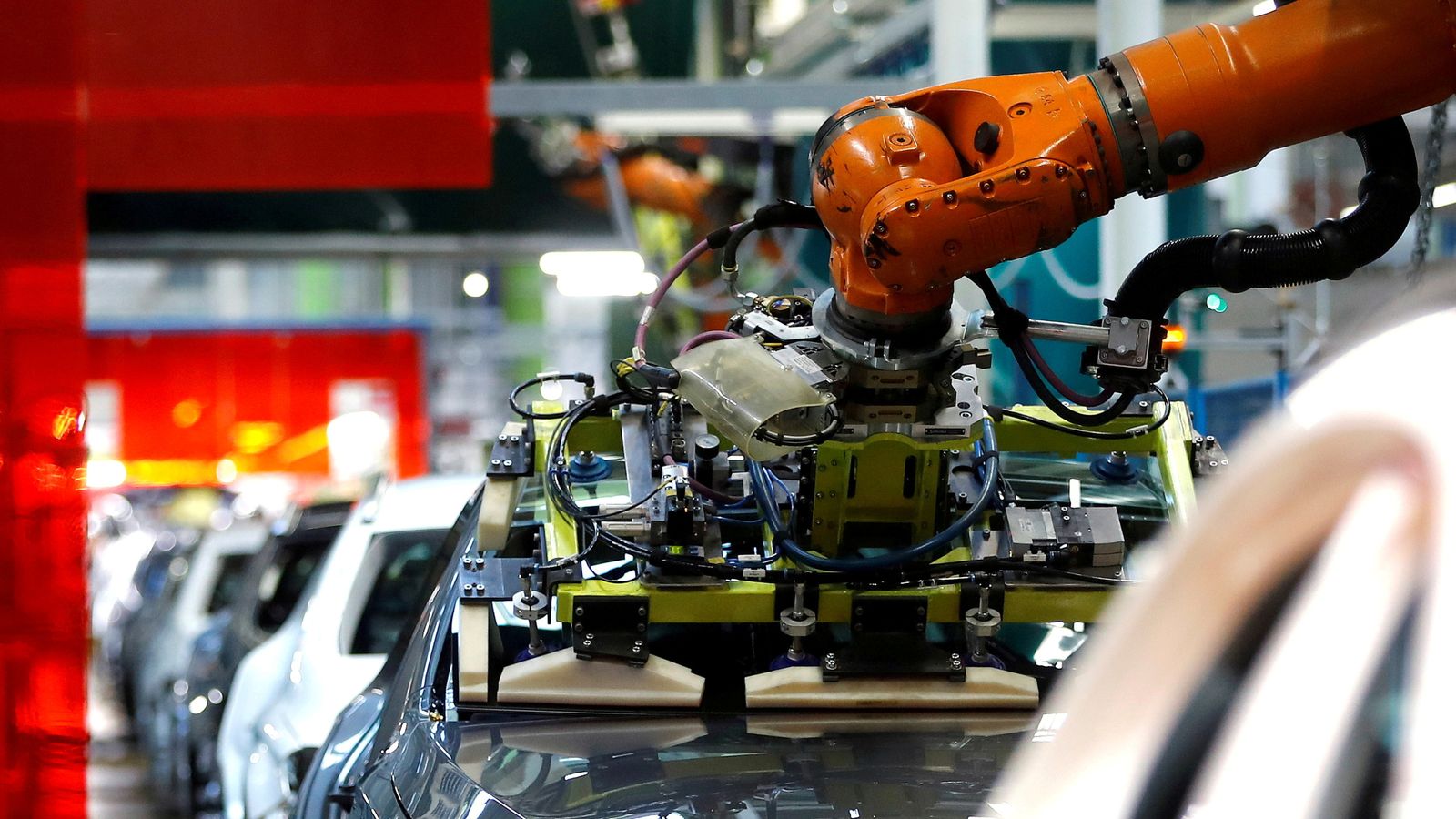The slump in the UK’s manufacturing industry continued last month with output, new orders and employment all falling, according to a closely-watched survey.
Business optimism in the sector also slid to a 12-month low in December, amid client closures and high interest rates, S&P Global/CIPS UK found.
The firms’ reported that their manufacturing purchasing managers index (PMI) weakened to 46.2 in December – the 17th month in a row that it has been below a score of 50, which is the threshold for growth.
The figure is also a decline on a slight improvement in November, when the index hit a seven-month high score of 47.2.
However companies still expect production to rise, on average, in 2024, due to “sales drives and new product launches”, the survey of around 650 manufacturers found.
Rob Dobson, director at S&P Global, said: “UK manufacturing output contracted at an increased rate at the end of 2023.
“The demand backdrop also remains frosty, with new orders sinking further as conditions remain tough in both the domestic market and in key export markets, notably the EU.
“The downturn has hit manufacturers’ confidence, which dipped to its lowest level in a year, and encouraged renewed cost caution with further cutbacks to stock levels, purchasing and employment.”
Read more from business:
First-time buyers fall to ‘lowest level in a decade’
Sharp increase in new vape shops in the UK
Aldi and Lidl report ‘best ever’ Christmas sales
Be the first to get Breaking News
Install the Sky News app for free
He added: “With concerns about high interest rates and the cost of living crisis hurting demand, the outlook for manufacturers in the months ahead remains decidedly gloomy.
“The downturn in demand is having some positive effects on supply chains, however, with suppliers reducing their prices
for raw materials and vendor lead times showing a further improvement.”
The survey also found a drop in demand from trading partners such as the US, China, Europe and Canada.
Job losses were recorded for the fifteenth month in a row, in part due to redundancies and hiring freezes in the sector.




